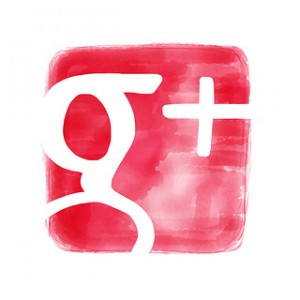

 APCO Worldwide released its ranking of the top 100 most loved brands of the past 10 years this week, and The Walt Disney Company took the top spot. While that news probably doesn’t come as a surprise to you, the brand in second place might. Yahoo! ranked as the second most loved brand in 2013 despite its struggles in recent years.
APCO Worldwide released its ranking of the top 100 most loved brands of the past 10 years this week, and The Walt Disney Company took the top spot. While that news probably doesn’t come as a surprise to you, the brand in second place might. Yahoo! ranked as the second most loved brand in 2013 despite its struggles in recent years.
To create its list, APCO surveyed 70,000 consumers in 15 major international markets asking them about 600 of the biggest global brands. The company measured eight separate emotions as part of its emotional linking model over the course of ten years. Using those findings, the top 100 most loved brands were ranked.
The eight emotions in APCO’s emotional linking model include:
- Curiosity – The brand piques consumers’ interest and they want to know more about it.
- Pride – Consumers are proud to be associated with the brand and feel like they’re part of a special group.
- Admiration – Consumers admire the brand, like a friend.
- Empowerment – The brand helps consumers accomplish their goals and feel confident.
- Relevance – The brand fits with who consumers are. It speaks to them and plays a meaningful role in their lives.
- Approachability – Consumers think the brand is accessible and within their reach.
- Identification – The brand reflects who consumers are. It shares their values and personality.
- Understanding – Consumers understand what the brand stands for.
According to the APCO study, the top 25 most loved brands are (follow the link at the beginning of the article to see the full list of the top 100 most loved brands):
- The Walt Disney Company
- Yahoo!
- Sony
- Nestle
- Auchan
- Netflix
- Whole Foods
- Apple
- Lowe’s
- Microsoft
- Kellogg’s
- Hershey’s
- Coca-Cola
- Dell
- Sharp
- Pepsico
- Nike
- HP
- Costco
- Target
- Amazon
- General Mills
- The Hartford
- IKEA
Taking a closer look at the top 25 companies listed above, I’d argue that a different emotional factor is actually at work driving the other emotional factors for a number of these brands—reliance. I’m not sure that consumers actually “love” Yahoo!, Google, or Sony the same way they “love” Disney. Instead, I’d argue that it is consumers’ reliance on some of these brands that causes consumers to rank them higher on APCO’s emotional linking model. For example, a large number of consumers rely on Google to find the information they want online, but at the same time, they don’t love how Google accesses and uses their personal information, tracks their behaviors, and so on. For many, it’s a love-hate relationship.
You can follow the link to see how each of the top 100 most loved companies ranked in terms of the eight emotions in APCO’s emotional linking model. One thing is certain. Based on this ranking, Netflix (ranked #7) certainly did a great job of quickly winning back the love of consumers after its disastrous mistakes in 2011.
Image: Susan Gunelius
Susan Gunelius is the author of 10 marketing, social media, branding, copywriting, and technology books, and she is President & CEO of KeySplash Creative, Inc., a marketing communications company. She also owns Women on Business, an award-wining blog for business women. She is a featured columnist for Entrepreneur.com and Forbes.com, and her marketing-related articles have appeared on websites such as MSNBC.com, BusinessWeek.com, TodayShow.com, and more.
She has over 20 years of experience in the marketing field having spent the first decade of her career directing marketing programs for some of the largest companies in the world, including divisions of AT&T and HSBC. Today, her clients include large and small companies around the world and household brands like Citigroup, Cox Communications, Intuit, and more. Susan is frequently interviewed about marketing and branding by television, radio, print, and online media organizations, and she speaks about these topics at events around the world. You can connect with her on Twitter, Facebook, LinkedIn, or Google+.


